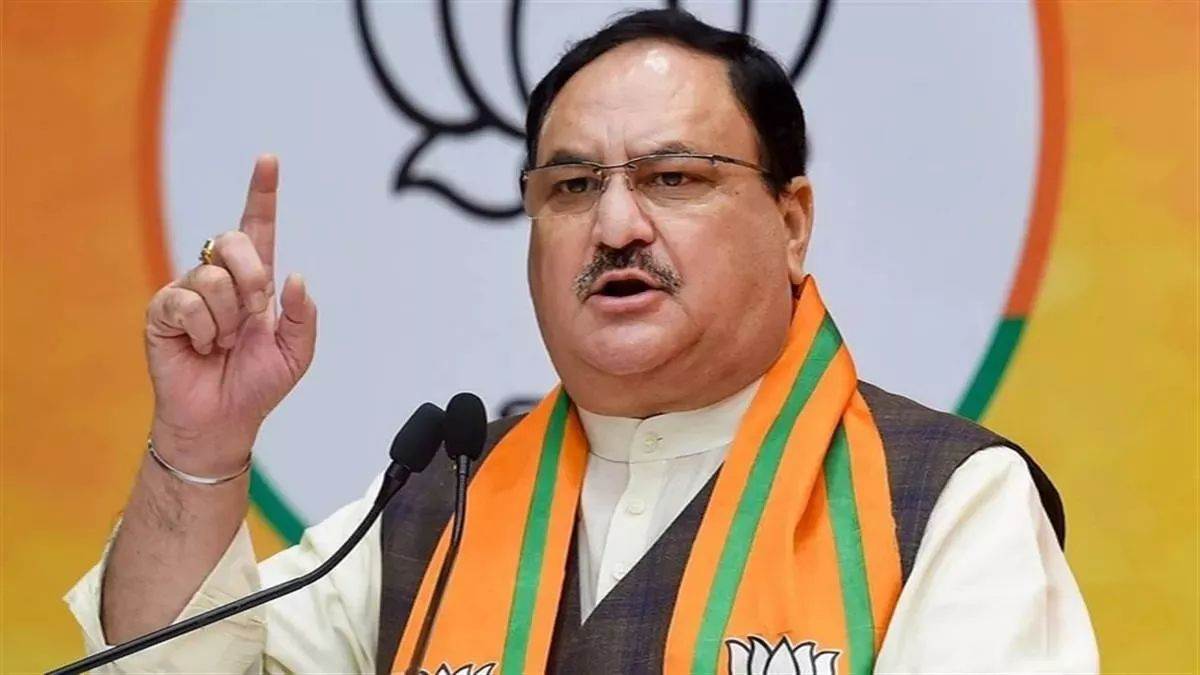The Bharatiya Janata Party’s metamorphosis is not only aimed at strengthening the organisation but also laying out a new blueprint to win the nine Assembly elections this year, ahead of the 2024 Parliamentary showdown.
If the BJP till ten years ago projected Atal Bihari Vajpayee, Lal Krishna Advani and Murli Manohar Joshi as its electoral mascots, it is evident that the saffron brand has decided to field a new troika to lead its charge. While Narendra Modi remains the biggest star in the party, as well as on the national scene, he shall be ably assisted by his two most trusted lieutenants, Home Minister Amit Shah and BJP chief Jagat Prakash Nadda.
By granting an extension to Nadda till June next year, the party’s National Executive has not only elevated his political status but has reposed tremendous trust in his abilities to mobile the organisational network throughout the country. Nadda took over as the BJP chief exactly three years ago and his being there till the 2024 Lok Sabha elections shall ensure continuity, and his compatibility to work with both Modi and Shah shall help reap political dividends.
Nadda is perhaps the first BJP chief who has virtually come up through the organisation route after holding positions at all the three levels, the Akhil Bharatiya Vidyarthi Parishad, the Bharatiya Janata Yuva Morcha and the main party. He was general secretary of the ABVP in the late 1980s and was appointed the Yuva Morcha president in 1991. Therefore, his understanding of the organisational affairs and his commitment to the RSS ideology is unflinching and unwavering.
If the party has decided to grant him extension, it is solely because the Sangh does not wish to take any chances during the run-up to the big electoral battle which would help in electing Modi for the third successive term. The political significance of Nadda’s extension is that despite the presence of two very senior leaders—Rajnath Singh and Nitin Gadkari—in the party, he has been given the coveted position. However, it does not mean that Rajnath and Gadkari are in any way not going to play their role in the forthcoming elections.
Many people had speculated that after the defeat of the BJP in Nadda’s home state, Himachal Pradesh, his political stock would go down. The loss in Himachal had nothing to do with his being from there but the outcome was influenced by the anti-incumbency against former Chief Minister Jai Ram Thakur and his policies.
Several messages have emanated from the BJP’s National Executive held in the capital earlier in the week. The saffron brigade is determined to carry the war into the camp of its opponents but is simultaneously re-framing its agenda. The call given by Modi to assist the deprived sections of society is a signal to many who have been ignored by the BJP in the past. It is a kind of assurance to make the saffron politics more inclusive and stems from the pragmatic dimensions of the current political situation.
The BJP, at least in the Hindi heartland and North India, had peaked during the 2019 elections. Thus, in order to expand its base and area of influence, it has to look at new regions and a new set of supporters, who would help in 2024. Although Amit Shah has declared that under Modi’s overall leadership and with Nadda’s organisational skills, the party would get greater numbers next year, yet it is something which is not going to be easy under any circumstances.
There has been a lot of churning going on in the party and majority of party cadres and leaders, who worked under the leadership of Vajpayee, Advani and Joshi have faded away and are sought to be replaced by new people. The complexion of the current BJP is comparatively different from the earlier one even though ideologically, the party seems to be more rigid to the core beliefs of the Sangh.
However, the induction of a large number of leaders and workers from other parties, can prove counter-productive in some areas, since the new entrants have been adjusted at the expense of local and old BJP workers. Barring Assam where Himanta Biswa Sarma has made a significant difference to the fortunes of the BJP, in most other places, things have not been as positive. In a number of states, leaders from other parties have joined the saffron brigade to prevent any kind of inquiries into their alleged irregularities while they served in important positions in their erstwhile organisations.
What the BJP has to also reckon with is its separation from Nitish Kumar in Bihar and the overriding ambitions of several state leaders, who all are projecting themselves as possible future Prime Ministers by whipping up regional chauvinism. The BJP has thus to overcome the emotional appeal of these leaders by counter measures to consolidate its position in the states.
In Karnataka, the BJP faces a stiff challenge from the Congress and the current Chief Minister, Basavaraj Bommai seems to be lacking in confidence to lead his party to victory. These are hurdles which shall come in the way of 2024 and thus this is where the skills of the Central leadership would be tested. The party has already got into damage control in the southern state, with Modi paying a visit there.
Every election has multiple unpredictable dimensions. Although Modi continues to be the BJP’s trump card, yet others need to also contribute. Between us.
Nadda, part of BJP Troika
- Advertisement -

